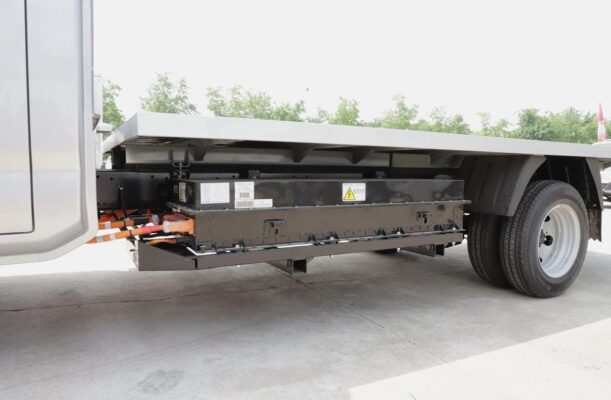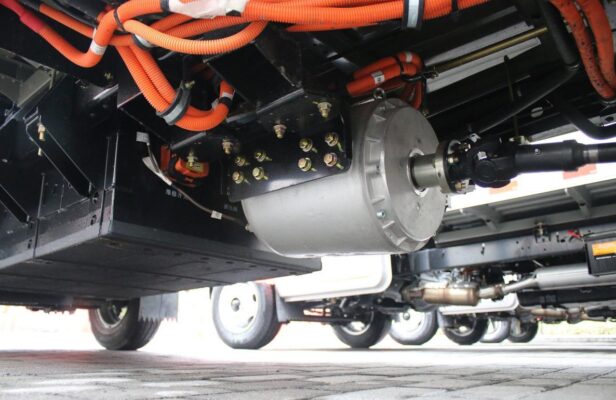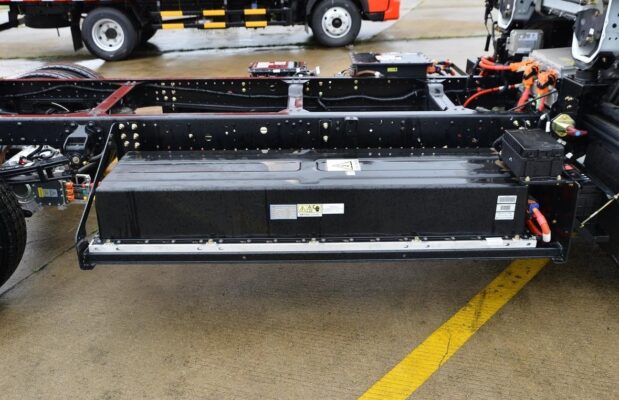Электр жүк ташуучу унаа жаңылыктары
How to deal with traffic violations generated by leased vehicles?
жайгаштырылган тарабынан Электр жүк ташуучу унаалар
In today’s rapidly evolving transportation landscape, the car rental industry has experienced a remarkable upsurge. As more and more people turn to leasing vehicles for various purposes, from business trips to personal vacations, the issue of handling traffic violations generated by leased vehicles has become a matter of significant concern. The “Procedural Provisions on Handling Road Traffic Safety Violations” play a crucial role in addressing this complex problem.

In recent years, the growth of the car rental industry has been nothing short of remarkable. With the convenience it offers, people can easily access a vehicle without the long-term commitment of ownership. However, this convenience also brings along certain challenges. One of the major issues is that most lessee drivers are often neither at the place where the traffic violation occurs nor at the place where the motor vehicle is registered. This creates a significant obstacle when it comes to handling traffic violations recorded by traffic technology monitoring during the car rental period according to the existing procedures.

The difficulty in handling traffic violations of leased cars has indeed become a troublesome and painful point that plagues both lessee drivers and leasing enterprises. Imagine a situation where a lessee rents a car for a business trip and unknowingly commits a traffic violation. If they are not in the vicinity of the violation location or the vehicle‘s registration place, the process of handling this violation can be extremely cumbersome and time-consuming. They may have to take time off work, incur travel expenses, and go through a complex administrative process to resolve the issue. For leasing enterprises, dealing with the backlog of unresolved traffic violations can also lead to increased administrative burdens and potential financial losses.
For this very reason, in 2019, the Ministry of Public Security took a proactive step by issuing the “Measures for Facilitating the Handling of Road Traffic Safety Violations Recorded by Traffic Technology Monitoring During Car Leasing Period.” This measure brought much-needed relief to lessee drivers and leasing enterprises. It clearly stipulates that lessees can query and handle traffic violations of leased cars online through the “Traffic Management 12123” APP. This not only saves valuable time but also reduces the economic costs associated with traveling to multiple places to deal with the violations.

Мисалы, suppose a lessee who lives in one city rents a car and travels to another city for a vacation. If they commit a traffic violation during their trip, instead of having to physically go to either the city where the violation occurred or the vehicle‘s registration city, they can simply use the “Traffic Management 12123” APP to check and handle the violation from the comfort of their own home. This convenience is a significant step forward in streamlining the process of dealing with traffic violations for leased vehicles.
In addition, if the lessee driver fails to handle the violation in a timely manner, and upon application by the leasing enterprise and verification by the public security traffic control department to be true, the public security traffic control department can transfer the traffic violation record to the name of the lessee driver. This provision ensures that responsibility is clearly assigned and that violations are not left unresolved.

To ensure that these reform measures are firmly grounded in the law, the “Procedural Provisions” clearly stipulate that for traffic violation information recorded by traffic technology monitoring equipment, if the actual driver can be determined, the public security traffic control department can change the traffic violation from under the name of the motor vehicle to under the name of the actual driver. This is a crucial aspect as it helps to hold the right person accountable for the violation and ensures fairness in the enforcement of traffic laws.
The implementation of the “Procedural Provisions” holds great significance and brings numerous benefits. For the vast number of lessee drivers, it simplifies the process of handling traffic violations, reducing stress and saving time. They no longer have to worry about the complex logistics of dealing with violations in distant locations. For leasing enterprises, it is estimated that this will save hundreds of millions of yuan in operating costs every year. By reducing the administrative burden of dealing with unresolved violations, they can focus on providing better services and expanding their business.

Moreover, the public security traffic control department’s commitment to timely summarizing the implementation effect of this reform measure and expanding the scope of application in due course is a positive sign. This means that as the system evolves and improves, more vehicle owners, managers, and drivers will benefit from these streamlined procedures. Мисалы, in the future, the scope may be extended to include other types of leased vehicles or different scenarios of traffic violations, further enhancing the efficiency and fairness of traffic law enforcement.
Аягында, the proper handling of traffic violations generated by leased vehicles is a complex issue that requires a comprehensive and practical approach. The “Procedural Provisions on Handling Road Traffic Safety Violations” and the associated measures issued by the Ministry of Public Security provide a solid framework for addressing this problem. By enabling online handling through apps and ensuring clear assignment of responsibility, these provisions not only benefit lessee drivers and leasing enterprises but also contribute to a more efficient and just traffic management system. As we look to the future, continued efforts to refine and expand these measures will play a crucial role in promoting safe and responsible driving in the ever-expanding car rental market.